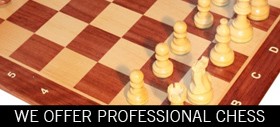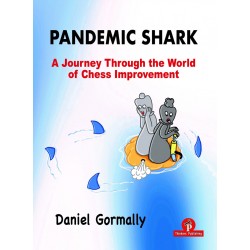No products
Pandemic Shark - A Journey Through the World of Chess Improvement - Daniel Gormally (K-6152)
K-6152
New product
Endgame theory teaches us two fundamental issues: First, how to extract the maximum from a basic theoretical position with little material, where the experts (from practice comprising thousands of games) have reached definite conclusions. Second, the way in which we can handle an endgame, depending on the material remaining on the board, and the ideas and plans we should employ.
- Write a review
Data sheet
| Language versions | English |
| Author / Authors | Daniel Gormally |
| Publisher | Thinkers Publishing |
| Year of Publication | 1st edition 2022 |
| Pages | 232 |
| ISBN | 9789464201536 |
| Hardcover | No |
| Paperback | Yes |
| Downloadable | No |
| Width | 17 cm / 6.69 inch |
| Height | 23.5 cm / 9.25 inch |
More info
The purpose of this series is to introduce the reader to advanced training concepts, using the same methods of presentation and instruction that were taught to great players by famous trainers that they have worked with. The series will start with the topic of “the Bishop Pair” and we will examine how to handle this “power of the sun” coupling.
I was once dismissive of the attempts by amateur players to improve. To me it seemed too obvious – you either had it or you hadn’t. Talent was ultimately all that mattered. All my writing on chess was really for myself. If amateur players couldn’t follow, tough.
I don’t think that this dismissive attitude towards amateurs by professional chess players is particularly unusual. There is plenty of talk about ‘fish’, and in professional circles a general level of contempt is always on display. Perhaps we too easily forget that we were once ‘fish’ and ‘patzers’ ourselves, and are probably still viewed as such by even higher-rated players. It is only recently that I have started to think more along the lines of how amateur players approach chess, and the typical mistakes they make.
Classic mistakes by amateur players include:
1. Moving a piece too often in the opening. This is one of the mainstays which I think relates at least partly to the desire to create something in the opening, when we would be better advised to focus on simple development.
2. Impatience. Sometimes amateur players are too eager to change something when there really is no need.
3. Overgeneralising. One of the biggest differences I’ve noticed when comparing professional play to amateur play is that the former is much more about concrete calculation – you go there, I go here and so on – whereas an amateur player will have a tendency to overgeneralise when thinking about a position, perhaps because they are not used to the basic art of calculation.
4. Cutting variations off too quickly. Amateur players do not extend their calculation far enough, and thus superficiality tends to kick in.
These and other mistakes I will try to explain in the book. Of course it should be noted that professional players also make these kinds of mistakes. I certainly do, all the time, so there is plenty of overlap and understanding of where these mistakes come from.
Reviews












